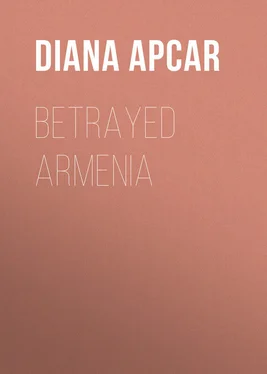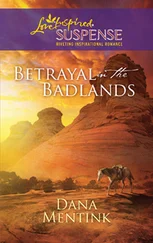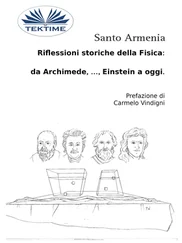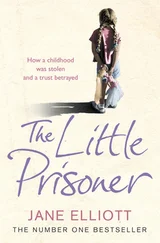Diana Apcar - Betrayed Armenia
Здесь есть возможность читать онлайн «Diana Apcar - Betrayed Armenia» — ознакомительный отрывок электронной книги совершенно бесплатно, а после прочтения отрывка купить полную версию. В некоторых случаях можно слушать аудио, скачать через торрент в формате fb2 и присутствует краткое содержание. ISBN: , Жанр: foreign_antique, foreign_prose, на английском языке. Описание произведения, (предисловие) а так же отзывы посетителей доступны на портале библиотеки ЛибКат.
- Название:Betrayed Armenia
- Автор:
- Жанр:
- Год:неизвестен
- ISBN:http://www.gutenberg.org/ebooks/53170
- Рейтинг книги:5 / 5. Голосов: 1
-
Избранное:Добавить в избранное
- Отзывы:
-
Ваша оценка:
- 100
- 1
- 2
- 3
- 4
- 5
Betrayed Armenia: краткое содержание, описание и аннотация
Предлагаем к чтению аннотацию, описание, краткое содержание или предисловие (зависит от того, что написал сам автор книги «Betrayed Armenia»). Если вы не нашли необходимую информацию о книге — напишите в комментариях, мы постараемся отыскать её.
Betrayed Armenia — читать онлайн ознакомительный отрывок
Ниже представлен текст книги, разбитый по страницам. Система сохранения места последней прочитанной страницы, позволяет с удобством читать онлайн бесплатно книгу «Betrayed Armenia», без необходимости каждый раз заново искать на чём Вы остановились. Поставьте закладку, и сможете в любой момент перейти на страницу, на которой закончили чтение.
Интервал:
Закладка:
The author of “La Crise de L’Orient” continues in this strain. Are we then to suppose that the British Consuls, men whose truthfulness has never been impeached, whose reports on the unsupportable sufferings of the subject christian races and the oppressions and hideous atrocities of the Turks, have filled volumes: and likewise the American Missionaries, men who have deservedly gained the honor and respect of the world, whose statements have corroborated the British Consular reports; have been according to Ahmed Riza Bey the mischief-makers in the Turkish Empire? since it is from them alone the world has gained the widest and most correct knowledge of the daily miseries and oppressions under which the subject Christian races have groaned. Are we also to suppose that men like Mr. James Bryce and Dr. Dillon have by mendacious writings upheld them, British Consul and American Missionary, liars, and mischief makers? Or rather are we not to suppose that if thinking men and women in the world have come to cry out with Chateaubriand “L’espèce humaine ne peut que gagner à la destruction de l’Empire Ottoman” it is because the Turks have earned the world’s condemnation through their own diabolical acts, and on account of the woe and desolation which Turkish rule has worked over the fairest provinces under the sun. If the Turk will turn from the evil of his ways unto good, the stigma of “the unspeakable Turk” which now attaches itself to him, will cease to be a veritable truth. The bringing about of the transformation rests with himself.
Further in answer to Ahmed Riza Bey’s account of the Armenian “prétendus patriotards” in connection with the Ottoman Bank; I cannot do better than quote from Mr. Bryce’s version of the story, and the massacre that followed: “In the following June serious trouble arose at Van, where some sort of insurrection is said to have been planned, though in the discrepancy of the accounts it is hard to arrive at the truth. Masses of Kurds came down threatening to massacre the Christians, and a conflict in which many innocent persons perished, was with difficulty brought to an end by the intervention of the British Consul. A little later the Armenian revolutionary party, emboldened by the rising in Crete, where the Christians, being well armed and outnumbering the Muslims, held their ground successfully, issued appeals to the Embassies and to the Turkish Government to introduce reforms, threatening disturbances if the policy of repression and massacre was persisted in. These threats were repeated in August, and ultimately, on August 26, a band of about twenty Armenians, belonging the revolutionary party, made a sudden attack on the Imperial Ottoman Bank in Constantinople, declaring they were prepared to hold it and blow it up should the Sultan refuse their demand. They captured the building by a coup de main , but were persuaded by the Russian dragoman to withdraw upon a promise of safety. Meanwhile the Government, who through their spies knew of the project, had organised and armed a large mob of Kurds and Lazes – many of whom had recently been brought to the city – together with the lowest Turkish class. Using the occasion, they launched this mob upon the peaceful Armenian population. The onslaught began in various parts of the city so soon after the attack on the Bank that it had obviously been prearranged, and the precaution had been taken to employ the Turkish ruffians in different quarters from those in which they dwelt; so that they might less easily be recognised. Carts had moreover been prepared in which to carry off the dead. For two days an indiscriminate slaughter went on, in which not only Armenian merchants and traders of the cultivated class, not only the industrious and peaceable Armenians of the humbler class, clerks, domestic servants, porters employed on the quays and in the warehouses, but also women and children were butchered in the streets and hunted down all through the suburbs. On the afternoon of the 27th the British Chargé d’Affaires (whose action throughout won general approval) told the Sultan he would land British sailors, and the Ambassadors telegraphed to the Sultan. Then the general massacre was stopped, though sporadic slaughter went on round the city during the next few days. The Ambassadors, who did not hesitate to declare that the massacre had been organised by the Government, estimated the number of killed at from 6000 to 7000; the official report made to the Sultan is said to have put it at 8750. 1 1 In a recent publication “Fifty Years in Constantinople,” the author Dr. George Washburn, ex-President of Robert College, estimates the number that were slaughtered in cold blood in the streets of the city as 10,000. Dr. Washburn adds the following: “The massacre of the Armenians came to an end on Friday, the day after the soldiers came to the College; but the persecution of them which went on for months was worse than the massacre. Their business was destroyed, they were plundered and blackmailed without mercy, they were hunted like wild beasts, they were imprisoned, tortured, killed, deported, fled the country, until the Armenian population of the city was reduced by some seventy-five thousand, mostly men, including those massacred.”
During the whole time the army and the police had perfect control of the city – the police, and a certain number of the military officers and some high civil officials, joining in the slaughter. Of all the frightful scenes which Constantinople, a city of carnage, has seen since the great insurrection of A.D. 527 when 30,000 people perished in the hippodrome there has been none more horrible than this. For this was not the suppression of an insurrection in which contending factions fought. It was not the natural sequel to a capture by storm, as when the city was taken and sacked by the Crusaders in A.D. 1204, and by the Turks in A.D. 1453. It was slaughter in cold blood, when innocent men and women, going about their usual avocations in a time of apparent peace, were suddenly beaten to death with clubs, or hacked to pieces with knives, by ruffians who fell upon them in the streets before they could fly to any place of refuge.” 2 2 “Transcaucasia and Ararat: Twenty Years of the Armenian Question.” – James Bryce.
I am also obliged to quote from an Article written by a Turkish Officer who signs himself A. J. and published in the “Siper-i-Saïka-i-Hurriet,” a Turkish daily, on July 6, 1909.
Every time that I hear the name Armenian I feel the bleeding of a moral wound within me. It was the year I was sent into exile (1896). On a Thursday, before we had left the Military School for our vacation, a rumor flew through the school, – “They are massacring the Armenians.” All my young patriotic companions turned pale from deep emotion. Every one tried to read in the sad faces of others the reason for this bad news. But each one avoided expressing his thought. After a time the details began to circulate to the effect that the Armenians had dared to destroy the Ottoman Bank and government buildings with bombs, and that this was the reason why they were massacred. At that time all of us trembled, because we also were enemies of that government, because we also wished to overthrow it, and although we were not convinced that the best service could be rendered by bombs, we were working quietly to spread our ideas. In our hearts a flame of enmity and indignation, no less terrible than bombs, was burning. The poor Armenians were being massacred ruthlessly, because out of their number five or ten persons, resenting their wrongs, had rebelled. But that which maddened these poor men, that drove them to rebellion and placed bombs in their hands was the stupidity of the people and the outrageous oppressions of the government. And now this inhuman government was killing with clubs a noble nation, under the pretext of putting down a rebellion produced by its own oppressions. Among the crimes committed by the former government the most unpardonable crime was the Armenian massacre. If there was a race up to that time among non-Moslem peoples which with sincere and deep feeling honored the Ottoman fatherland that race was the Armenian. It is the Armenians who wear most nearly the national dress, who speak and write Turkish best, and recognize the Ottoman country as their fatherland. Besides this it is the Armenians who engage in commerce and agriculture, and thus, by demonstrating its fruitfulness, increase the value of the Ottoman Empire. Because a few among them justly started an agitation, these our noble and industrious brethren were being massacred. What a terrible scene! When we left the school building we saw hundreds of the bodies of our Armenian compatriots being removed in manure carts; legs and arms were hanging down outside. This bloody scene will ever remain impressed on my mind.
Читать дальшеИнтервал:
Закладка:
Похожие книги на «Betrayed Armenia»
Представляем Вашему вниманию похожие книги на «Betrayed Armenia» списком для выбора. Мы отобрали схожую по названию и смыслу литературу в надежде предоставить читателям больше вариантов отыскать новые, интересные, ещё непрочитанные произведения.
Обсуждение, отзывы о книге «Betrayed Armenia» и просто собственные мнения читателей. Оставьте ваши комментарии, напишите, что Вы думаете о произведении, его смысле или главных героях. Укажите что конкретно понравилось, а что нет, и почему Вы так считаете.












